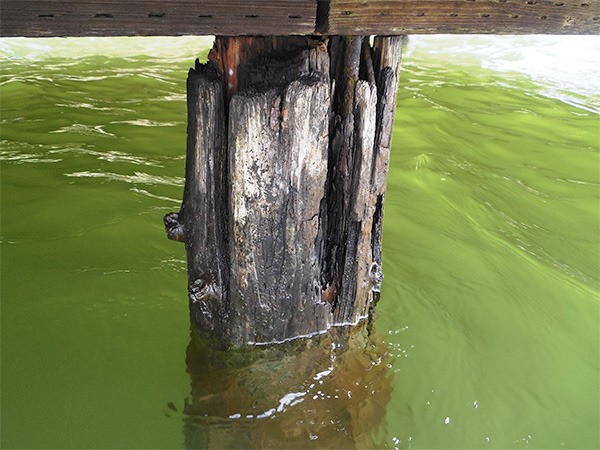One of the biggest parks projects scheduled for next year is a dock replacement at Groveland Beach, which will cost almost $1 million.
The Parks and Recreation department’s goal is to extend the lives of Mercer Island’s beloved parks and beaches, including the big three: Groveland, Clarke Beach and Luther Burbank.
Over the past couple years, the parks maintenance team has seen the deterioration of Groveland Park in particular, which presents a safety concern, said Parks Superintendent Jason Kintner.
“It’s a big project, but it’s a big dock,” Kintner said. “Water projects aren’t cheap.”
The Groveland dock was built in 1965 with untreated wood. Kintner said the department hired consultants and divers to do comprehensive studies on the underwater structures at Groveland, Luther Burbank and Clarke Beach, and found that Groveland’s expected useful life extends only one or two years.
The project will ideally include replacing the elevated dock and removing the concrete bulkhead to restore a more natural shoreline, Kintner said.
“The thing that the community loves so much is the fact that it has the elevated platform, so that’s a dock that you could actually dive off into deeper water,” Kintner said during the Capital Improvement Project (CIP) preview on June 16. “It’s a very popular area. We could talk about not replacing the smaller dock, which would save some costs.”
The parks department had a meeting on Aug. 7 to discuss the needed repairs with interested residents, and to incorporate ideas and feedback into the Groveland Park design.
The project cost estimate — which originally included replacing both docks at the beach and removing the concrete bulkhead — has already been scaled back from $990,000 to $935,000, after City Council and public input indicated that replacing the smaller dock wasn’t a top priority.
The $935,000 cost estimate is just a placeholder, Kintner said, and a more specific number won’t be known until the city hires a design consultant.
Another unknown factor is the scheduling and length of closure time for the beach. Kintner said the most likely time will be July 15 to Sept. 30, which is the “fish window” in which construction is least harmful to the lake environment.
“This will impact our swim season, whatever we decide to do here,” Kintner said. “We want to create a shoreline that is consistent with the Shoreline Master Plan and healthy shorelines, but it’s also a defined swim beach.”
In June, Councilmember Jane Brahm said that the shoreline restoration could make the project a good option for grant funding.
Kintner said that the city missed the Recreation and Conservation Office (RCO) grant cycle for this year, so the project will be funded with real estate excise tax (REET).


